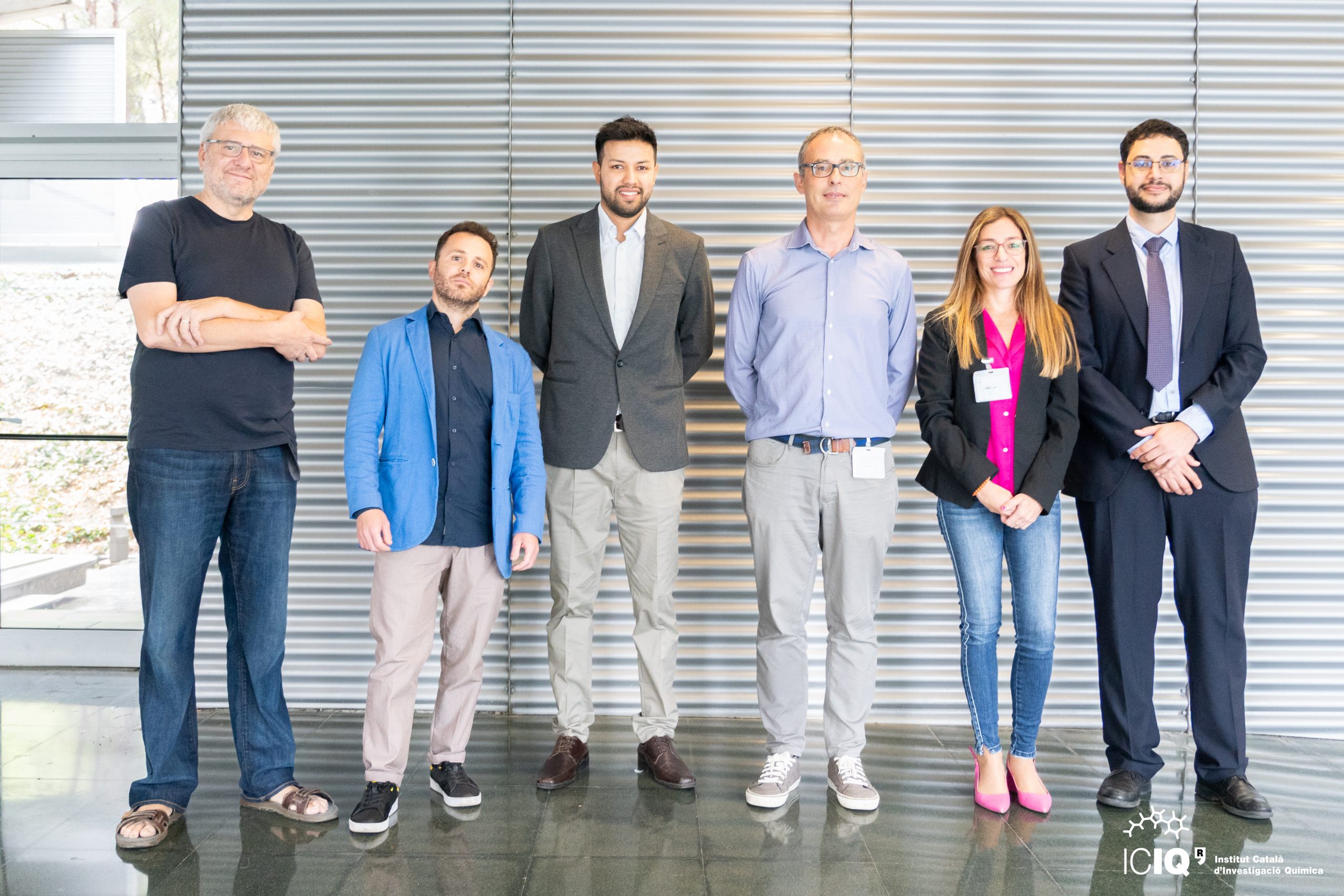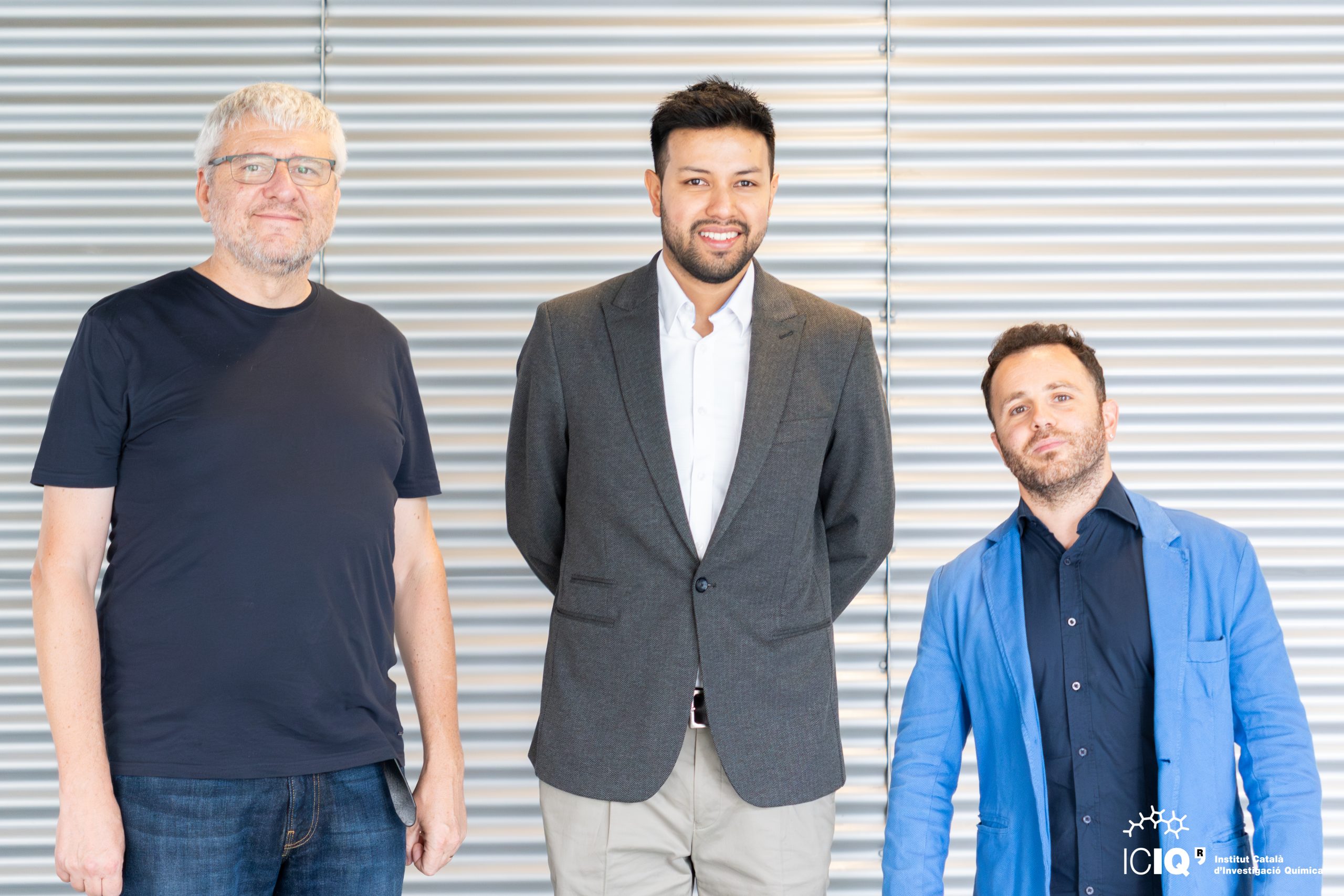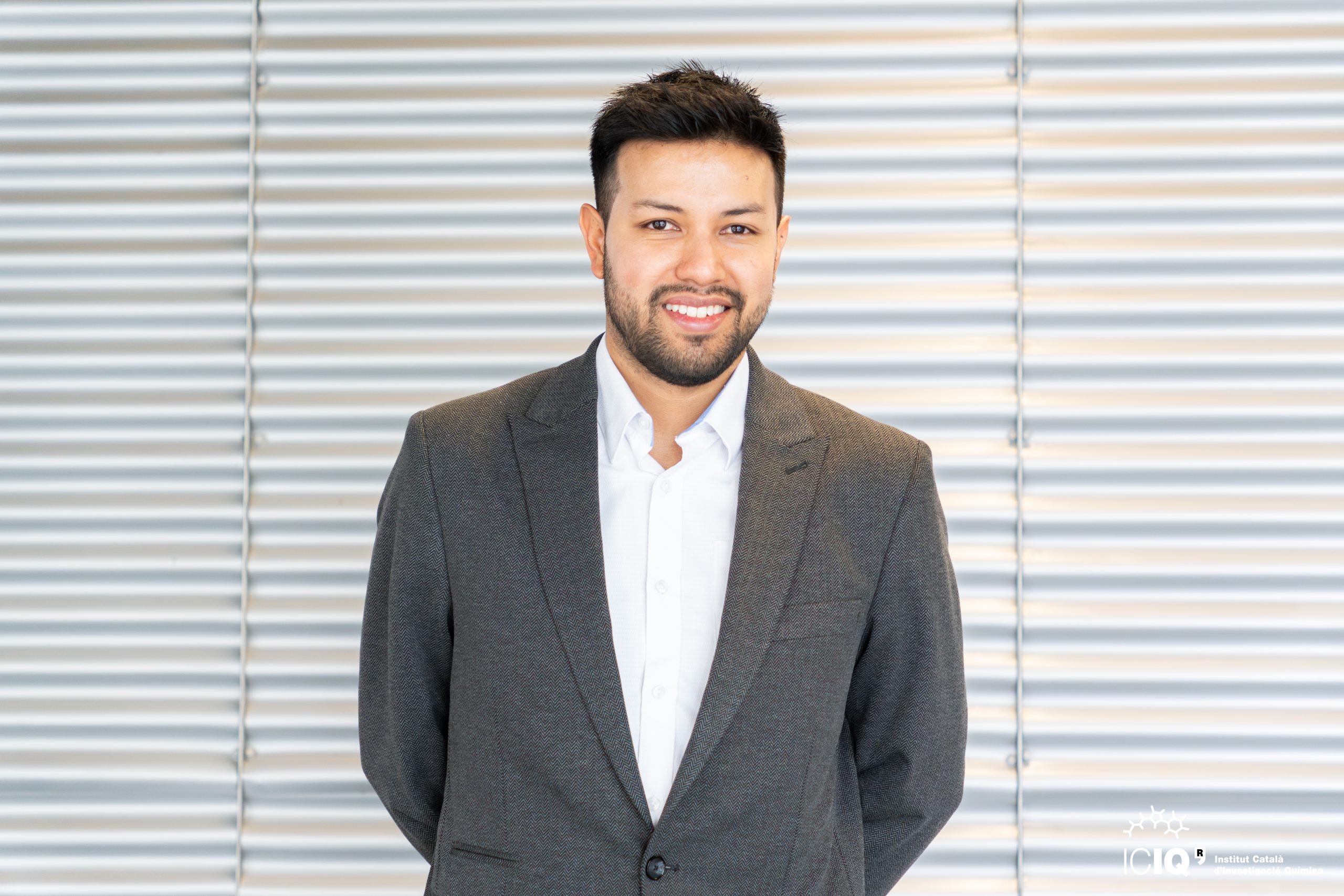Felicidades, Dr. Capelo!
Santiago Capelo, a PhD student under the supervision of Prof. J.R. Galán-Mascarós and Dr. Stefano Giancola (Orchestra Sci), has successfully defended his PhD thesis entitled “Exploring Carbon Capture and Storage: Bridging the Gap Between Laboratory and Industry” publicly on Thursday, September 19th, at 10:00 a.m.
The members of the examining committee were Prof. Dr. Jorge A. Rodriguez Navarro (Universidad de Granada), Prof. Dr. Jesús González Cobos (Université du Lyon, France) and Prof. Dr. Paola Baldivieso Freitas (Fertighy)

Santiago Alexander Capelo Avilés is a Chemical Engineer with a Master’s degree in Thermodynamic Engineering of Fluids, currently pursuing an Industrial Doctorate under the mentorship of Prof. José Ramón Galán Mascarós. Outside of academic, he enjoys coding, playing guitar, and soccer. He is also a devoted family man who treasures the time spent playing, teaching, and making memories with his daughter.
He has received an Industrial Doctorate Program scholarship from the Generalitat de Catalunya, grant number 2019 DI 0073.
Why did you become a scientist?
I’m naturally curious and driven by a desire to understand how things work and the world around us.
What do you want to achieve as a scientist?
My goal is to bridge the gap between academic (basic) research and industrial application, translating scientific discoveries into tangible technologies that benefit society and the environment.
What is your thesis about?
My thesis focuses on CO2 capture, encompassing both a preliminary industrial study and the investigation of a Metal-Organic Framework (MOF) for post-combustion CO2 capture. It also explores the potential of utilizing industrial waste as a CO2 storage material.
What triggered your interest in the subject of your thesis?
The thesis topic resonated with me due to its direct industrial application and, more importantly, its focus on addressing the pressing societal challenge of reducing CO2 emissions.
What applications can your thesis have in the future?
My thesis bridges the gap between basic science and industrial application, focusing on the practical implementation of MOFs as a CO2 capture adsorption material. The successful implementation of this technology could help industries capture and utilize CO2, preventing its release into the atmosphere.
The thing that I like most about my thesis is…
It offers a practical solution to a widespread sustainability problem within the industry.
From the lessons learnt (or skills developed) at ICIQ, which one do you value the most?
I most value the development of critical thinking skills. This ability has proven invaluable not only in my scientific pursuits but also in navigating everyday life. It empowers me to question and evaluate information independently, rather than blindly accepting claims without evidence.
What ICIQ moment you’ll never forget?
The camaraderie, laughter, and shared wisdom in the lab will always hold a special place in my memory.. Especially those moments when we’d turn up the upbeat music to make the work more enjoyable.
What will you miss the most from ICIQ?
All my colleagues and friends.
What do you wish you had known at the beginning of your PhD?
Time management and resilience: keys to progress as a PhD student.
What advice do you have for someone who’s starting their PhD now?
Don’t rush or burn out trying to get immediate results. Embrace the process, even with its challenges. It’s a rewarding journey. Especially at the beginning, work closely with your team and postdocs. Their guidance is invaluable as you build your independence. And remember, even when you’re on your own, collaboration is key. At ICIQ, and especially for those coming from abroad, make the most of this unique environment. Foster friendships, enjoy the experience, and let the doctoral journey be a positive one.
From your experience at ICIQ, what do you think we can improve?
ICIQ excels in generating groundbreaking research, but there might be opportunities to strengthen collaborations with industrial partners or create programs to foster entrepreneurial thinking among researchers.
Have you ever been emotional over an experiment/simulation? Why?
Yes, there were definitely times when experiments didn’t go as planned, and having to repeat them could be frustrating. While I’m not a fan of repetition, I appreciate the value it brings to the research process.
Who/What has been your biggest influence/motivation?
I’m motivated by the challenge of understanding how things work and using that knowledge to solve problems.
Where are you going next? What will you do there?
I plan to continue my postdoctoral research at ICIQ for the foreseeable future. Afterward, I intend to transition into an industry role, focusing on R&D.
Chemistry/Science is fun because…
Science, and particularly chemistry, is like playing with LEGO. You get to build exciting new creations by combining different pieces (atoms). The possibilities are limitless, as each new combination unlocks a world of innovation and creative potential.
What is your favourite molecule?
CO2.
If you were a piece of lab equipment, what would you be?
I’d be the tubing. Simple, yet vital, it’s the hidden conduit that ensures that every fluid-based instrument in your lab works seamlessly.
Tell us something about you that people might not know…
When I was younger, I played soccer professionally.


Related news

Let's create a brighter future
Join our team to work with renowned researchers, tackle groundbreaking
projects and contribute to meaningful scientific advancements






 20-12-2024
20-12-2024 


















